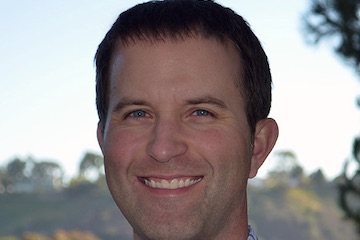The coronavirus pandemic is forcing many companies to adjust to a home-based workforce. TaxJar, a sales-tax compliance platform, has been entirely remote since its founding seven years ago. All 160 employees work remotely, mainly from their homes.
Mark Faggiano is TaxJar’s founder and CEO. I recently spoke with him about managing a large, distant team. What follows is our entire audio conversation and a transcript, edited for length and clarity.
Kerry Murdock: Tell us about yourself and TaxJar.
Mark Faggiano: We started the company in 2013. Our mission has always been to make ecommerce easier. I’m a career entrepreneur. I understand the rigors of entrepreneurial life. I’ve developed a passion for trying to help entrepreneurs be successful. One of the biggest problems, especially for ecommerce companies, is sales tax compliance. By helping solve that problem, we were making ecommerce easier, giving entrepreneurs a better chance to be successful.
We do three things, basically. First, we help merchants calculate how much tax to collect at the point of sale. We do that across multiple channels. Second, we take all that data, normalize it, give it back to sellers to file sales tax returns on their own. Third, sellers can use our AutoFile service, which means we’ll take care of the whole thing — file sales tax returns and remit the amount due on time.
Murdock: How many employees?
Faggiano: Roughly 160.
Murdock: And they all work from home?
Faggiano: Yes. We’re entirely remote. We’ve been that way since day one. We’ve never paid a dollar in rent. We did not plan it that way. Those of us that started the company lived in different places. We knew each other well. We didn’t need to be in the same room to be productive. Within the first year or so, we realized that we were on to something. It’s been a fantastic experience for us.
Murdock: Does everyone work the timeframe, say 9 a.m. to 5 p.m.?
Faggiano: No. We’re a team built on trust. Trust is essential in any business, but it’s the whole ballgame for an all-remote organization. There’s no way that we can look over teammates’ shoulders and watch every single thing that they’re doing. But it comes down to making sure that we hire the right people, who know how to work in this environment and then set them up with the right tools to do their best work.
We don’t care if they work a traditional 9 a.m. to 5 p.m. or 6 a.m. to 2 p.m. It’s up to them. We hopefully do a good job of onboarding them and making sure that they understand what their role is. And we rely on them to figure out their schedule.
Murdock: Are you involved in their home workspace or environment?
Faggiano: We have suggestions. We screen for this when we’re interviewing. We ask people about their environment. We’re clear on the fact that “we’re hiring you, and we’re expecting you to do your work, do it really well, and do it on time.” That hopefully, sets the tone. Most of our folks work from home. Some prefer being in a coffee shop or maybe a coworking space. We have security requirements for those situations. All employees get a stipend to make sure that they have everything they need, such as a standing desk or an extra monitor, so they can focus on the work.
Also, every new employee gets a new computer. We’re a Mac shop. Ninety-nine percent of our teammates have new MacBooks. And we have a very purposeful one-week onboarding process that is critical to the remote experience for every employee. We cover a lot of information in that week.
And, yes, the onboarding process is remote, too. Everything we do is remote — mostly through Zoom. We also use Basecamp, which is where we live as a company. We have a dedicated onboarding team.
Murdock: Is it easier to attract employees with a remote setup?
Faggiano: Yes, for sure. We don’t have a big challenge in terms of recruiting. Part of that is the remote factor. Working from home has become much more popular since we launched seven years ago. People don’t question it anymore.
Murdock: You mentioned Basecamp and Zoom. Are those the main internal communication tools?
Faggiano: Yes. We do not use text at all. Email is just for external use — mainly for our partner team and sales team. We don’t want employees emailing each other. Basecamp provides that functionality. It’s the home for internal dialog. A team member could post, for example, “Hey, I have an idea. What do people think?” That’s not an urgent need. It’s amenable to multiple time zones.
However, we definitely have urgent issues. Sales tax deadlines are a good example. We can’t ignore those. That’s when we urge people to jump on a Zoom call and have that conversation face to face.
Murdock: You have 160 employees. How many states does that represent?
Faggiano: Roughly 40, I believe. The amount of compliance — income tax withholding, worker’s compensation, unemployment tax — is pretty alarming.
Murdock: Anything else?
Faggiano: The Covid-19 situation is going to bring about permanent workforce changes. Companies that are forced to adopt a remote staff should be thinking about it. When the pandemic passes, some employees will not want to go back to the office. Some will miss the office and will want to return.
But a significant group of workers is going to love being at home. They’re going to resist going back. It’s going to cause problems for some organizations. They’ll likely need to be more flexible with their remote policies and rethink whether they require an office, paying all that rent.







